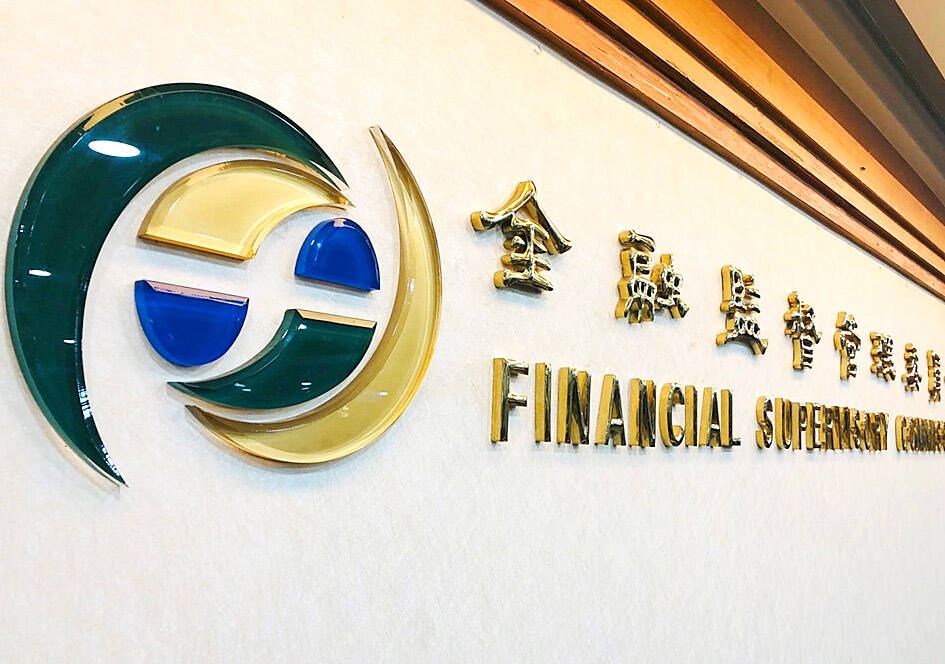Peer-to-peer (P2P) lending platform im.B is suspected of defrauding users of a large sum of money, the Financial Supervisory Commission (FSC) said yesterday.
The platform operator has one account each at four banks: CTBC Bank (中信銀行), Cathay United Bank (國泰世華銀行), E.Sun Commercial Bank (玉山銀行) and Bank SinoPac (永豐銀行), and only tens of thousands of New Taiwan dollars are left in them, Banking Bureau Director-General Sherri Chuang (莊琇媛) told a meeting of the legislature’s Finance Committee.
About 20 people have sought help from the police, and local prosecutors have begun investigating the case, the National Police Agency said at the meeting. More than 1,000 people have formed an online self-help group in an attempt to get their funds back, it said.

Photo: Kelson Wang, Taipei Times
The commission has not finalized how much money is involved in the case, but according to the self-help group it could amount to NT$2.5 billion (US$81.31 million).
Founded in 2015, im.B, which is short for “I am Bank,” enables users to lend money to other users. The platform provides interest of more than 6 percent to attract investors.
“It seems that the company has breached the Banking Act (銀行法) and is subject to criminal liability,” Chuang said, adding that im.B’s managers and representatives could be sentenced to more than seven years in prison if they are found guilty.
The commission would require the four banks to review and improve their know-your-customer operations, she said.
Peer-to-peer lending platforms are high-risk, and lending money via such platforms does not guarantee interest, Chuang said.

Jensen Huang (黃仁勳), founder and CEO of US-based artificial intelligence chip designer Nvidia Corp and Taiwan Semiconductor Manufacturing Co (TSMC, 台積電) on Friday celebrated the first Nvidia Blackwell wafer produced on US soil. Huang visited TSMC’s advanced wafer fab in the US state of Arizona and joined the Taiwanese chipmaker’s executives to witness the efforts to “build the infrastructure that powers the world’s AI factories, right here in America,” Nvidia said in a statement. At the event, Huang joined Y.L. Wang (王英郎), vice president of operations at TSMC, in signing their names on the Blackwell wafer to

France cannot afford to ignore the third credit-rating reduction in less than a year, French Minister of Finance Roland Lescure said. “Three agencies have downgraded us and we can’t ignore this cloud,” he told Franceinfo on Saturday, speaking just hours after S&P lowered his country’s credit rating to “A+” from “AA-” in an unscheduled move. “Fundamentally, it’s an additional cloud to a weather forecast that was already pretty gray. It’s a call for lucidity and responsibility,” he said, adding that this is “a call to be serious.” The credit assessor’s move means France has lost its double-A rating at two of the

AI BOOST: Although Taiwan’s reliance on Chinese rare earth elements is limited, it could face indirect impacts from supply issues and price volatility, an economist said DBS Bank Ltd (星展銀行) has sharply raised its forecast for Taiwan’s economic growth this year to 5.6 percent, citing stronger-than-expected exports and investment linked to artificial intelligence (AI), as it said that the current momentum could peak soon. The acceleration of the global AI race has fueled a surge in Taiwan’s AI-related capital spending and exports of information and communications technology (ICT) products, which have been key drivers of growth this year. “We have revised our GDP forecast for Taiwan upward to 5.6 percent from 4 percent, an upgrade that mainly reflects stronger-than-expected AI-related exports and investment in the third

RARE EARTHS: The call between the US Treasury Secretary and his Chinese counterpart came as Washington sought to rally G7 partners in response to China’s export controls China and the US on Saturday agreed to conduct another round of trade negotiations in the coming week, as the world’s two biggest economies seek to avoid another damaging tit-for-tat tariff battle. Beijing last week announced sweeping controls on the critical rare earths industry, prompting US President Donald Trump to threaten 100 percent tariffs on imports from China in retaliation. Trump had also threatened to cancel his expected meeting with Chinese President Xi Jinping (習近平) in South Korea later this month on the sidelines of the APEC summit. In the latest indication of efforts to resolve their dispute, Chinese state media reported that